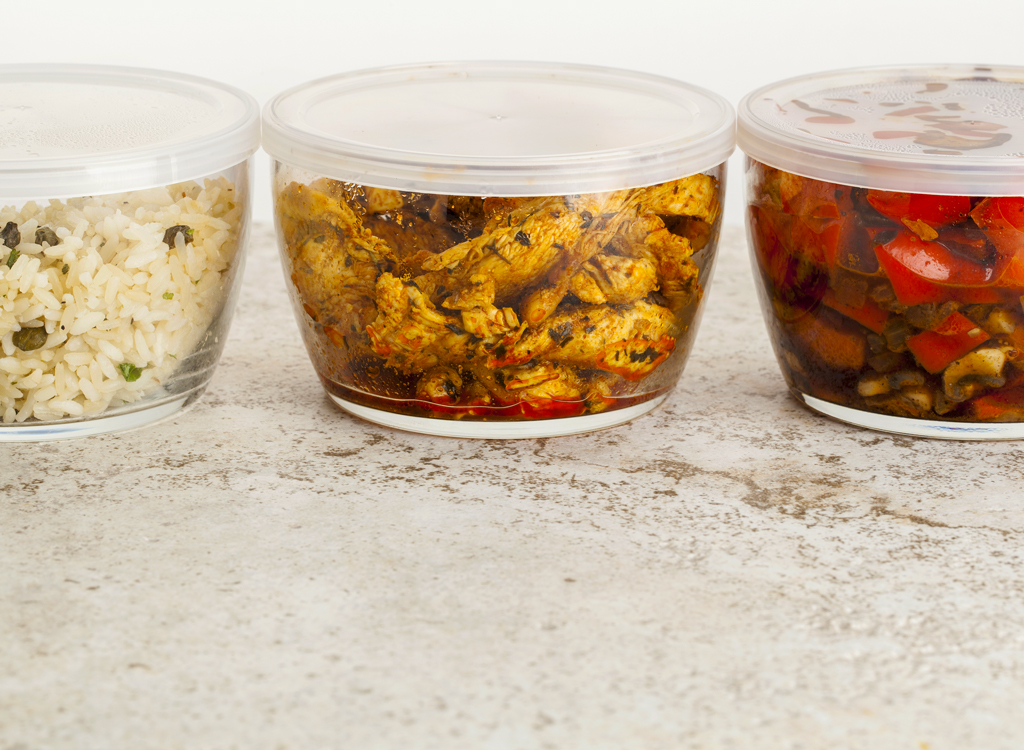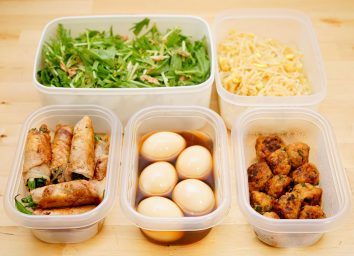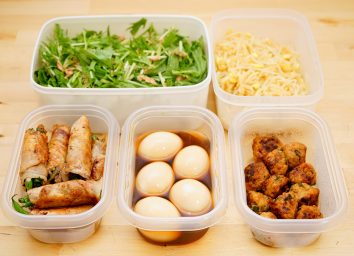The Scientific Reason Why Leftovers Taste So Good

Leftovers often get a bad name, thanks to foods that don't reheat as well (looking at you, soggy sandwiches). However, there are many dishes that actually taste better after sitting in the fridge for a day or two. And there's a scientific reason why.
According to the Institute of Food Technologists, flavors can be enhanced overnight due to chemical reactions, which continue to take place after cooking and produce more and/or new flavor molecules in a variety of ingredients, which is why leftovers can taste so good.
How can you make your leftovers taste good?
Molecules aside, all this food science results in more tender, juicier, tastier foods—if you know how to prep it properly, that is. A good leftover starts with seasoning the first time around.
"Food that's well-seasoned can taste better simply because as in a curry or marinated beets, the seasonings have had a while to soak into the carrier meats, beans, or vegetables," says Sara Dickerman, author of Secrets of Great Second Meals.
But that doesn't mean that a reheat wouldn't benefit from a few fresh herbs. "Curries do sometimes still need a hit of something fresh, like chopped cilantro or a squeeze of lime, just to wake them up," Dickerman advises.
Her additional reheating tips include adding a little water to second-day spaghetti for more moisture, reheating yesterday's veggies in a steamer, crisping up potatoes or sausage with a little fat in a frying pan, or browning leftovers.
What should you avoid when reheating leftovers?
Nick Evans, author of Love Your Leftovers, agrees that taking time in the reheat matters. "While it's the easiest, avoid the microwave," he warns. "It's a killer to flavor. Try to heat foods gently either in a skillet over low heat or in a very low oven (like 250-300 F˚)."
What foods don't make good leftovers?
Still, there are some dishes that will never make it back to your plate in a better state. Evans says shellfish is "pretty terrible" as a leftover, so you should only buy and prep enough for one serving at a time.
And despite being a master at transformations, Dickerman says her leftover no-no is hamburgers. "It's largely a textural thing," she explains. "A good burger is all about the contrast between the crisp exterior and the juicy rare interior; [after it's] refrigerated, it takes on a pebbly gray consistency and color, and I really find it hard to work into something new."
Of course, there are things you shouldn't even try, like old food. You should throw out all leftovers after three to four days, or three to four months for frozen foods, according to the USDA—and that's no matter how good that stew or lasagna may taste.
What foods can taste better as leftovers?
Now, here are some ingredients that will taste even better the second time around, as well as a few tips to keep your leftovers as tasty as possible.
Spices and aromatics
Foods such as garlic, onion, and peppers react with proteins and starches while cooking, and they'll continue to do so when left in your fridge overnight, which helps make your leftovers taste good. When you go for round two of your sausage and pepper stir fry, the result is an even better flavor. The main reason? Time.
Sure, occasionally, you may make a stew or chili that simmers all day, but for most of us, dinner looks something like rushing home from work and throwing together a quick curry. After scarfing it down, you'll taste ingredients individually, but after a night of the curry resting in a storage container, the flavor profile becomes more robust and well-rounded over time. Yum!
RELATED: The easy way to make healthier comfort foods.
Meats
Pairing meat with sauce or broth makes for a next-day winner. "When stewed meat cools down, the gelatinous material from the collagen and tendons, etc. that has melted during cooking begins to gel in and around the chunks of meat," Dr. Kantha Shelke, a member of the Institute of Food Technologists and founder of Corvus Blue LLC, a Chicago-based food science and research firm, told Forbes. The result is flavor compounds trapped within the gel, which is even more prominent in ground meat.
Plus, giving your meat a good soak in oils and spices will help tenderize the meat, Atlas Obscura explains. So if you've ever wondered why your red sauce-soaked meatballs are juicier the next day, now you know.
Potatoes and other starches
As for potatoes, it's a similar process to the meat gelling. When you cook starch, it gelatinizes, and as it cools, it breaks down. "The molecules begin to rearrange and realign themselves into a crystalline structure again," Shelke told Forbes. "As it does, this flavor compounds from the surrounding sauce are trapped inside the structure."








